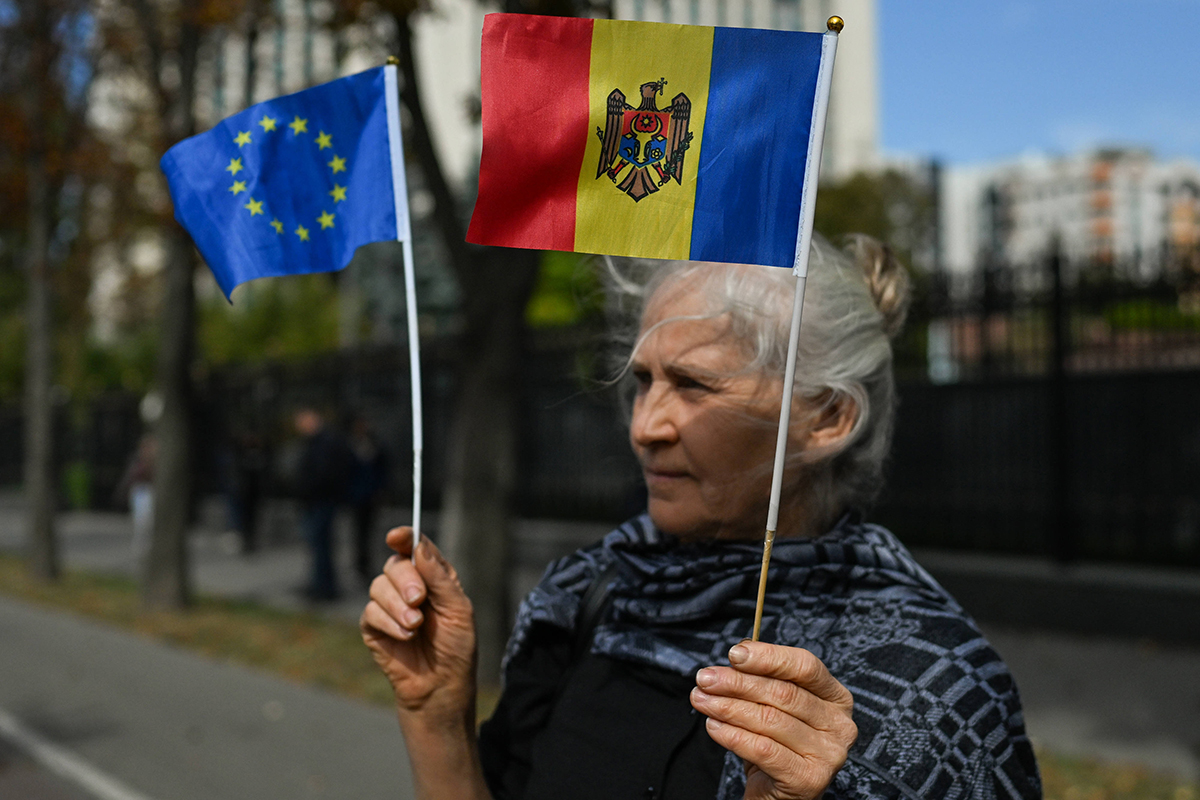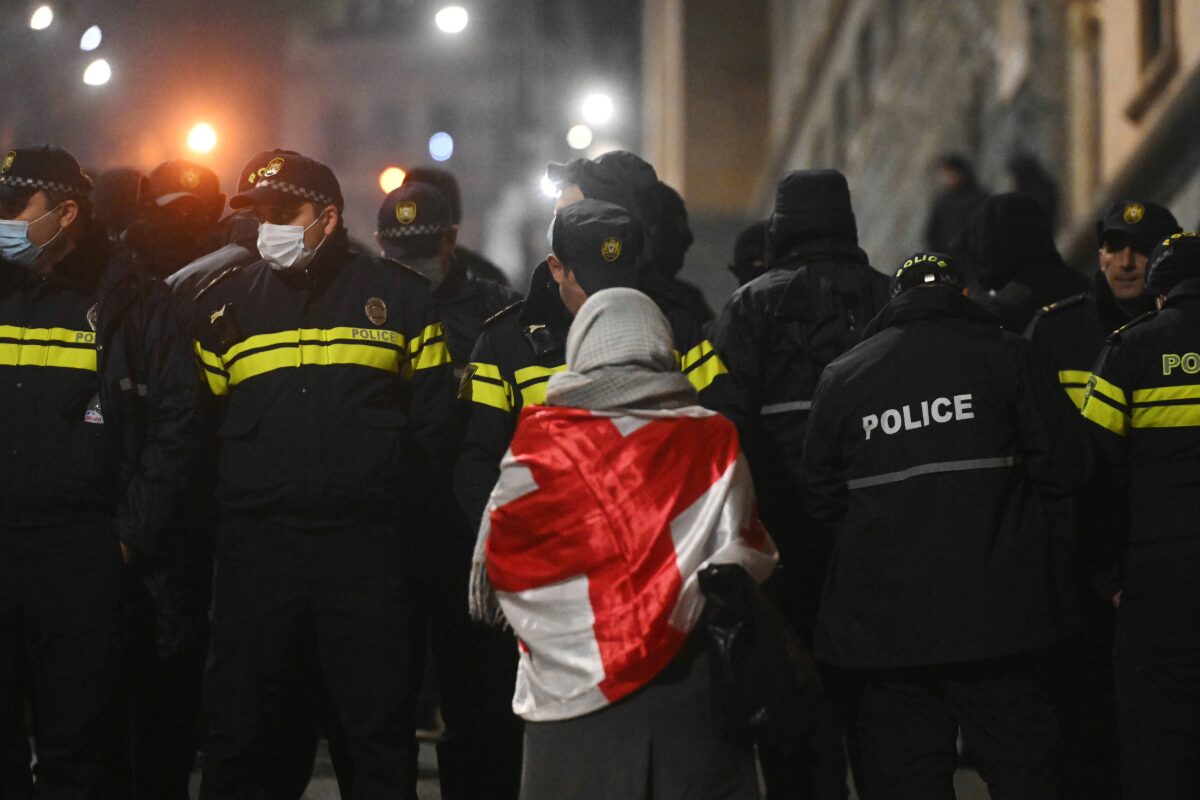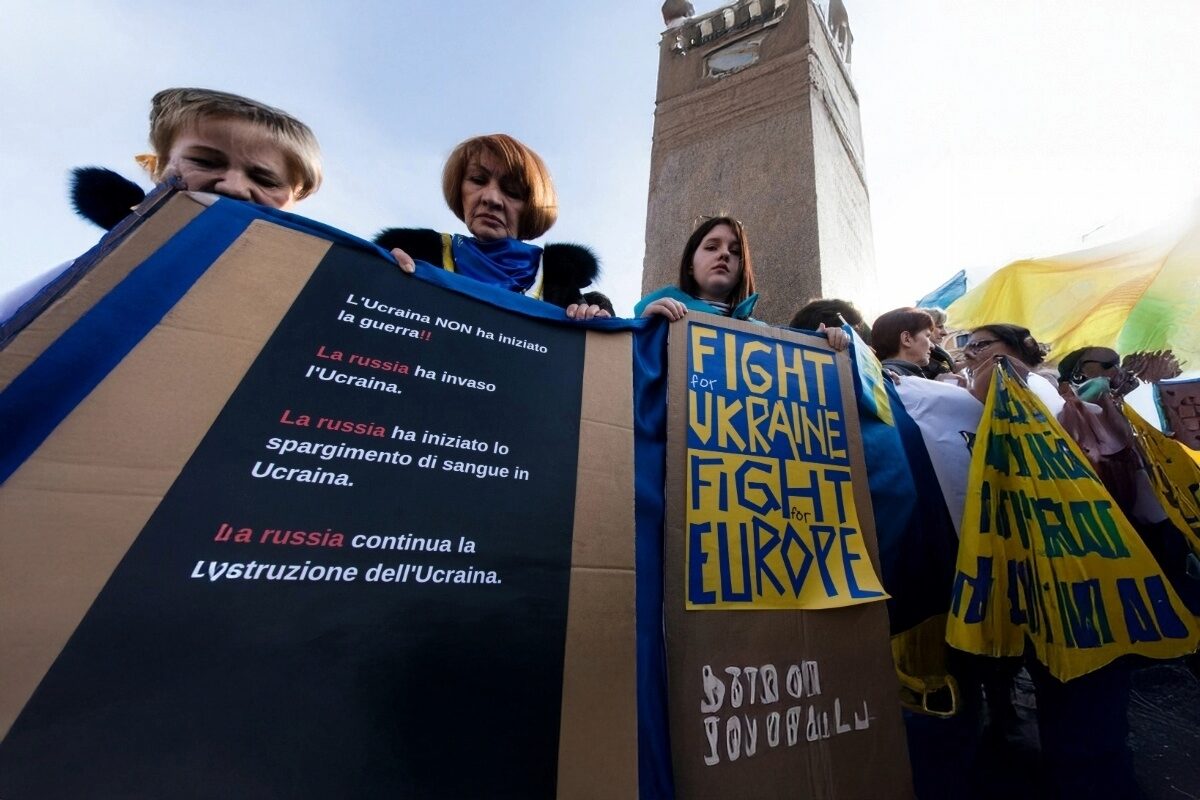Input Paper “Overview of the current situation and challenges of the fight against corruption in the Republic of Moldova”

As part of our project “Eastern Partnership Plus”, we are publishing a first series of input papers on the topic of anti-corruption reforms in Ukraine, Georgia and Moldova. The authors from the region (Kateryna Ryzhenko, Ion Guzun, Sandro Kevkhishvili) analyse the role of the European Union in supporting the fight against corruption and formulate their political recommendations for decision-makers in Berlin and Brussels.
By Ion Guzun, Attorney at Law
Overview of the current situation and challenges of the fight against corruption
On 8 June 2019, Moldova’s Parliament adopted a declaration recognizing that the state had been captured by the oligarch Vladimir Plahotniuc and the Democratic Party of Moldova (PDM) under his leadership. That same day, the two parties of the ACUM Bloc and the Party of the Socialists entered into an unlikely agreement to form a new coalition government with ACUM’s Maia Sandhu as prime minister. The newly established government undertook to investigate corruption schemes and illicit financial flows, fight corruption and reform the judiciary. Feeling threatened by the revolutionary measures taken by the Sandu Government to remove political influence from the judiciary and Prosecutor General’s Office, the PSRM toppled the government five months after its appointment. The succeeding PSRM-led coalition government under Ion Chicu stalled the judicial reforms and the anti-corruption measures, while the Socialists focused on re-building the Plahotniuc style power vertical.
The appointment of a new Prosecutor General in November 2019 did not bring the expected breakthrough in the investigation of high-profile corruption cases, such as the banking fraud and Laundromat money-laundering scheme. On the contrary, the Prosecutor General’s Office released from prison or freed from criminal investigation multiple individuals involved in money laundering and the billion-dollar banking fraud, among them the controversial businessman Veaceslav Platon, two Shor Party MPs who figure in the Kroll reports[1] and Vlad Filat,[2] the former prime minister. The Prosecutor General’s Office refused to launch an official investigation into the alleged bribery of then President Igor Dodon, even after a video leaked in the summer of 2020 showing Igor Dodon taking a plastic bag from the oligarch Vladimir Plahotniuc in 2019 had gone viral.[3] Another investigation into bribery among MPs launched in 2020 has been also stalled.
Although Moldova has made some progress, such as amendments to the legislation on sanctions of criminal offenses and improving policy documents and procedures on money laundering, these achievements were made possible largely thanks to the external pressure exerted via the conditionality mechanism attached to the EU macro-financial assistance, and far less due the existence of any genuine political will on the part of the incumbent government. No progress has yet been made towards strengthening the anti-corruption institutions by narrowing the competences (and thus sharpening the focus) of the specialized Anti-corruption Prosecutor’s Office (APO).
Anti-corruption reforms: main achievement and failures
Moldova has adopted a string of various anti-corruption strategies and action plans since gaining its independence. The latest National Integrity and Anticorruption Strategy expired in 2020, but only 50 (39%) of its 127 measures had been implemented by mid-2020, though another 20% had been partially implemented.[4]
The latest Strategy and the Action Plan for ensuring the independence and the integrity of the justice sector for 2021–2024, adopted by the PSRM-Sor Party coalition in late 2020, was due to go into effect as of 1 January 2021. On 17 February 2021, President Maia Sandu returned the justice sector strategy to the Parliament for further review, requesting the implementation of the mechanism of the external evaluation of judges, that the assets and interest disclosures submitted by judges and prosecutors be subject to effective review and that the Constitution be amended to allow for the confiscation of assets/ wealth owned by public servants in the absence of justification. Parliament did not re-examine the justice sector strategy before 28 April 2021 (when the presidential decree dissolving parliament was signed).
The verification of asset reporting is proceeding very slowly, and priority seems to be given to conflicts of interest, which are of less complexity. Unfortunately, the integrity inspectors perform only superficial checks on the asset and interest statements submitted, limiting these only to form and content and do not compile all the information from previous years or investigate discrepancies revealed in this way. As of the time of writing, of 11 investigations initiated to check assets, four cases citing the unjustified property have been sent to court. The National Integrity Authority (NIA) needs to amend the rules governing the verification of asset and interest statements, ensure their effective implementation with respect to the disclosures of all high-level actors and ensure the timely publication of results of these investigations.
Since 2016, the e‑integrity system has been available for online filing and verification of asset and interest statements. Automated cross-checking is extremely important for the effective verification of such statements. NIA failed to implement this mechanism, although the donor community has expressed its readiness to support the improvement thereof, subject to a prior audit of its functioning.
Amendments to the Criminal Code toughening the sanctions for corruption offenses entered into force in October 2020. The new legal framework, aimed at combatting corruption by improving effectiveness in the criminal investigation phase, will provide for the possibility of criminal prosecution bodies with additional procedural tools. Also, the term of imprisonment for corruption has been increased to 8 years.
The Anti-corruption Prosecutor’s Office (APO) of the Republic of Moldova was created to fight high-level corruption. However, it devotes significant efforts to cases involving small-scale corruption. Thus, restricting the mandate of the APO to cases of high-level corruption would help its prosecutors to focus on the cases of high-level corruption; such investigations require increased guarantees of independence as well as special methods and means of investigation due to the complexity of the cases and interests involved. Such a mandate justifies the maintenance of a specialized body with a special status.[5]
In 2020, no high-ranking Moldovan officials were sentenced for corruption. On the contrary, judges postponed significant cases or released suspects under investigation, and prosecutors have been stalling with respect to the proper investigation of substantiated allegations of corruption. For instance, Oleg Sternioală, a Supreme Court Judge, was detained in November 2019 in a criminal investigation on suspicion of large-scale money laundering and illicit enrichment to the tune of about EUR 320,000, the discrepancy between the suspect’s income and his expenditures. More than a year later, the case has still not been sent to court. Mr. Sternioală resigned from the court, but is a practicing attorney. In June 2020, the Chișinău Appellate Court issued an order to cease criminal proceedings against two individuals caught in flagrante delicto trying to send, through third-parties, USD 250,000 to members of parliament in March 2014. This was the first case involving high-level corruption of MPs.
In September 2019, the APO withdrew the charges against 14 former and current judges accused of money laundering in the “Laundromat” case, on the grounds that the elements of the offense could not be established. In late October 2020, the Superior Council of Magistracy accepted the requests of five magistrates to be reinstated in the positions they had held until 2016, when they became subjects of criminal prosecution, and ordered that they receive back pay for the period in which they were suspended from acting as judge.
The draft amendments which would provide for an extension the anticorruption strategy until 2022 are still awaiting a decision by Parliament. Based on judicial statistics, the National Anticorruption Centre, NAC claims that the courts issue sentences involving “real” imprisonment in no more than 16% of all corruption cases, and issue fines in 71% of them.[6]
The EU’s role in supporting the fight against corruption
The fight against corruption has been a constant priority in the EU-Moldova dialogue and constitutes an important part of the EU-Moldova Association Agreement (AA), signed in 2014. The two Association Agendas produced by the Association Agreement set out a clear area of actions in the field of rule of law, among them the comprehensive reform of the prosecution and the justice sector, actions to advance the fight against corruption, especially high-level corruption, and to strengthen the independence and functionality of the existing anti-corruption institutions (the National Anticorruption Centre and the NIA). The second Association Agenda for 2017–2019,[7] which was approved after the one-billion banking theft came to light, defined a more extensive and detailed list of anti-corruption and anti-money laundering measures.
Before 2018, the European Union had not allocated funding to support rule-of-law measures within the framework of the European Neighbourhood Instrument (ENI). The first ENI-funded programme aimed at strengthening the rule of law and anti-corruption mechanisms was launched in 2018,[8] with a budget of EUR 8.5 million.
In December 2020, The European Commission approved the disbursement of EUR 5 million in budget support assistance to help the delivery of reforms in the police sector in the Republic of Moldova. This new payment comes in the wake of the second instalment of the now expired Macro-Financial Assistance programme in July (EUR 30 million), and the first instalment (EUR 50 million) of the emergency Macro-Financial Assistance programme, disbursed in November.[9] It encompasses important anti-corruption and anti-money laundering components vis-à-vis the Ministry of Interior and the police.[10]
The Joint EU/CoE Project Controlling Corruption through Law Enforcement and Prevention (CLEP) started on 1 June 2017, with a duration of 36 months and a budge of EUR 2.2 million.[11] In addition, the EU initiated a million-euro Twinning project with the NAC in September 2017, aimed at strengthening the institutional capacities of the NAC, APO, Ministry of Internal Affairs (MIA), General Police Inspectorate (GPI) and Customs Service, and thus increasing their effectiveness in the fight against corruption.[12]
The current High Level Advisor’s Mission provides expertise on combatting corruption and money laundering. This is not the only support that the European Union, the Council of Europe, and the other donors provide to assist Moldova in the fight against corruption and money laundering.
Main conclusion and recommendations as to how the EU could effectively support anti-corruption reforms
Conclusions
- The EU conditionality mechanism has been a key impetus for all of the anti-corruption and judicial reforms implemented by the Moldovan government in recent years.
- The assets verification mechanism and fight against high-level corruption remains ineffective, targeting mostly the low-level public servants and conflicts of interests. The existing legal shortcomings make the investigation of illegal enrichment a challenging task.
Recommendations
(1) with respect to the Eastern Partnership framework (Association countries)
- Enhance cooperation between the law enforcement and anti-corruption agencies of the EU , including the European Public Prosecutor’s Office, and the EaPs in the areas of combatting high-level corruption, controls of foreign assets of high-ranking public officials, the recovery of criminally acquired assets and combatting financial crime.
- Extend the scope of the Global Human Rights Sanctions Regime (EU ‘Magnitsky Act’) to include individuals involved in high-level corruption cases in the EaP countries.
- Continue to define the rule of law and the fight against corruption as key criteria and conditions for closer political partnership and financial assistance to the EaP countries.
- Continue to provide civil society with capacity support and funding to support monitoring the transparency, integrity, and effectiveness of state institutions in implementing anti-corruption and judicial reforms.
(2) with respect to the Republic of Moldova specifically
- Strengthen the capacity of the APO and NIA to handle high-level corruption cases and the competencies of the NIA to carry out effective controls of assets and interest statements.
[1] Ziarul de Gardă, 2 October 2020, “Tauber and Apostolova freed from criminal prosecution in the banking fraud case”, https://bit.ly/2SlS0OZ.
[2] Radio Free Europe, 4 December 2019, “Former Moldovan PM convicted of bribery released from prison”, https://www.rferl.org/a/former-moldovan-pm-convicted-of-bribery-released-from-prison/30306678.html.
[3] Ziarul de Gardă, 23 June 2020, “The Anticorruption Prosecutor’s Office concluded the investigation regarding the b[l]ack plastic bag”, https://www.zdg.md/en/?p=3722.
[4] National Anticorruption Center, Monitoring Report on implementation NIA Strategy for the semester I, 2020, https://cna.gov.md/public/files/Raport_SNIA__sem_I_2020_.pdf.
[5] The Legal Resources Centre from Moldova, The Anti-Corruption Prosecution office should investigate only high-level corruption, available at https://crjm.org/wp-content/uploads/2019/01/2018–11-Nota-Competentele-PA-fin_eng.pdf.
[6] National Anticorruption Centre, The study on court sentences for corruption offenses. Specialized courts / panels. International practices and recommendations for the Republic of Moldova, available in Romanian at https://bit.ly/3csMjFR.
[7] https://eur-lex.europa.eu/legal-content/EN/TXT/?uri=CELEX%3A22017D1489.
[8] https://ec.europa.eu/neighbourhood-enlargement/sites/near/files/annex_3_clean_anti_corruption_final.pdf.
[9] Moldova: EU approves €5 million in support of police sector reform — https://bit.ly/2Tasblf.
[10] https://www.eu4moldova.md/en/content/support-police-reform-republic-moldova.
[11] Council of Europe, Project on Controlling Corruption through Law Enforcement and Prevention, available at https://www.coe.int/en/web/corruption/completed-projects/clep.
[12] Twinning Project “Support to the strengthening of the operational capacities of the Law Enforcement Agencies of the Republic of Moldova in the field of prevention and investigation of criminal acts of corruption”, available at https://bit.ly/3cpT3EG.
Ion Guzun, Attorney at Law
Gefördert durch:

![]()
Did you like thike this article? If yes, you can support the independent editorial work and journalism of LibMod via a simple donation tool.
We are recognized as a non-profit organization, accordingly donations are tax deductible. For a donation receipt (necessary for an amount over 200 EUR), please send your address data to finanzen@libmod.de
Related topics
Newsletter bestellen
Stay tuned with our regular newsletter about all our relevant subjects.





